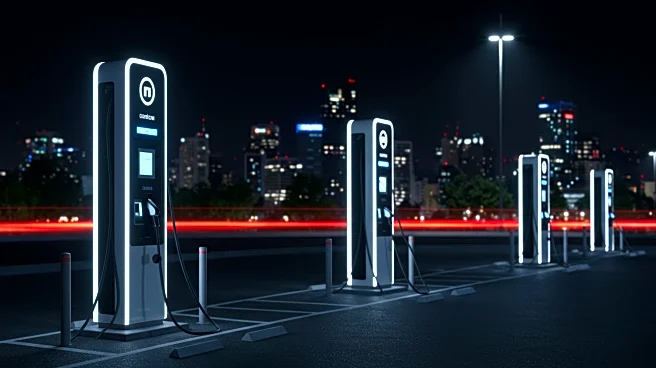What's Happening?
Tesla, along with other electric vehicle manufacturers like Rivian and Lucid, is experiencing a significant revenue loss due to the U.S. government's decision to end the emission credit market. The National Highway Traffic Safety Administration (NHTSA) has ceased issuing compliance letters for fuel economy standards, effectively eliminating the market for credits under the Corporate Average Fuel Economy (CAFE) standard. This change follows the passing of President Trump's 'Big Beautiful Bill,' which removes federal tax credits for electric vehicle purchases and ends penalties for automakers with lower average fuel economy. Tesla, which reported nearly $2.5 billion in revenue from regulatory credits over the last four quarters, is particularly affected, with estimates suggesting that half of this revenue comes from U.S. sales.
Why It's Important?
The cessation of emission credits is a major blow to the electric vehicle industry, particularly for companies like Tesla that have relied heavily on these credits for revenue. The removal of these credits could slow down the adoption of electric vehicles in the U.S., as automakers may face increased financial pressure without the incentive to produce more fuel-efficient vehicles. This policy change could also impact the U.S.'s position in the global electric vehicle market, potentially allowing other countries to advance more rapidly in EV technology and production.
What's Next?
The Zero Emission Transportation Association (ZETA) has filed a petition in the U.S. Court of Appeals to compel NHTSA to resume issuing compliance letters. However, NHTSA has stated that it will only return to issuing these letters after reviewing the CAFE standards, with no clear timeline provided. The uncertainty surrounding these regulatory changes may lead automakers to reconsider their strategies for electric vehicle production in the U.S.









